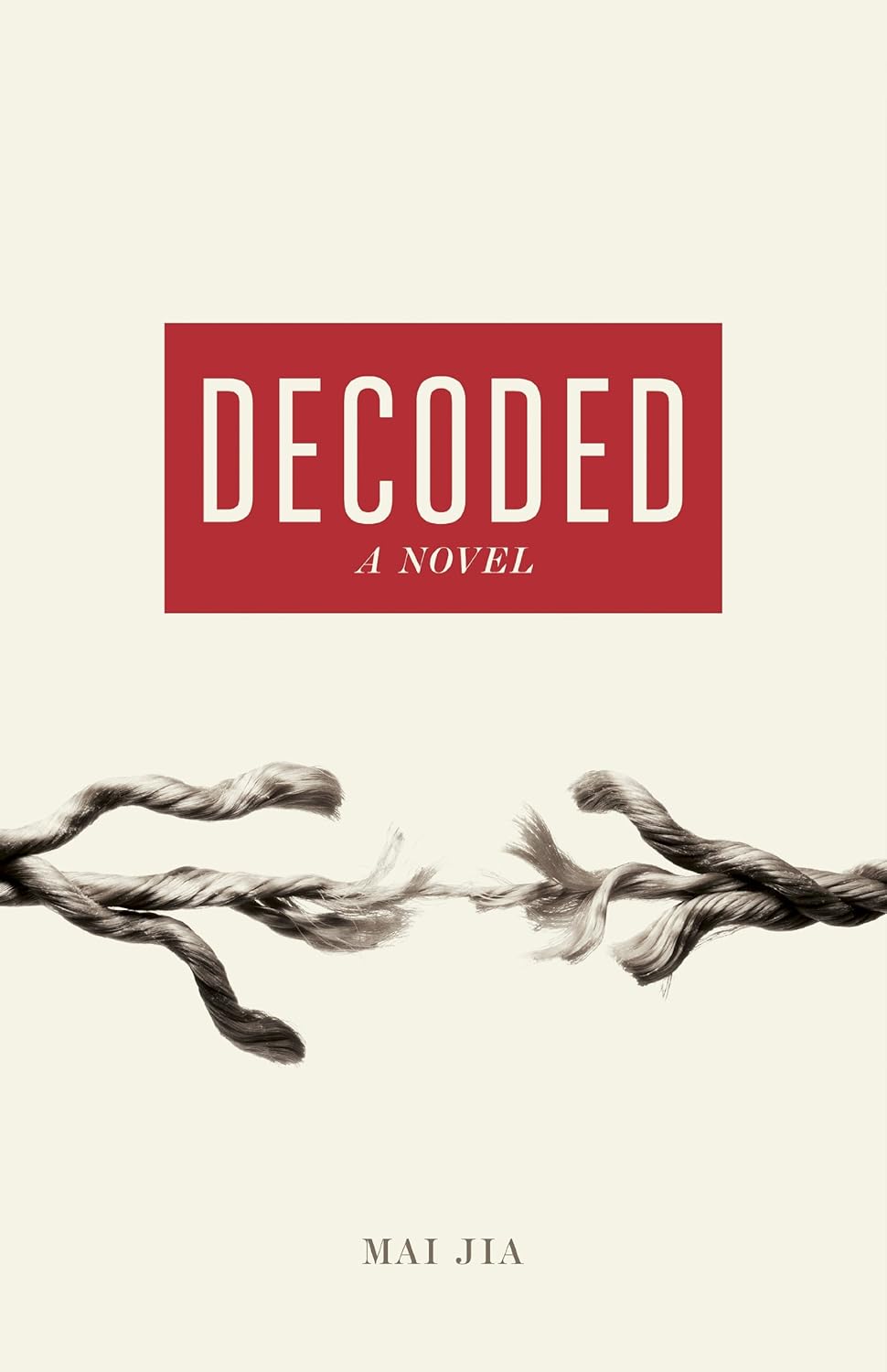One of the initial things that interested me about Decoded is that it is published by Allen Lane, something which is quite unusual as the imprint usually only publishes non-fiction, at first I thought it could have perhaps been a book that had strayed over from the popular science bays, looking further it also seems that another novel by Mai Jia, In the Dark, (which won Jia the Mao Dun Literary Prize in 2008), is due to be published in June, early information available about the book mentions that it'll feature one of the same settings as Decoded, (Unit 701), I'm looking forward to reading In the Dark, which is interestingly described as being structured as a filing cabinet. Another aspect about Decoded that caught my attention when browsing it is that it comes with a recommendation from filmmaker Wong Kar Wai, this was enough of a poke in the ribs for me to read further. Decoded opens in the style of being a family chronicle before taking it's time to settle into focusing on it's main character - Jinzhen, who also is given the nick name of Zhendi by his adoptive sister and before this earlier in the novel he is also referred to as Duckling, the time period that the novel is situated in begins sometime prior to the war's beginning and goes on into the middle of the end of the last century. The family who acts as Jinzhen's adoptive family are the Rong's, a prosperous family of Tongzhen, this journey of his adoption is in places a complex one, but Jinzhen as a youth is primarily looked after by a foreigner - Mr Auslander, in his early years there are tell tale signs of his fascination with mathematics and numbers and after Mr Auslander's passing, Jinzhen spends his time working on calculating the exact number of days Mr Auslander had been alive as a slightly moving testament to his former adoptive parent, the initial figure is revised many times after the realization of his not factoring in leap years, but Jinzhen takes working out the equation to an even more precise degree.
Another foreigner that features in Jinzhen's life is Professor Jan Liseiwicz who teaches at N University who comes to realize Jinzhen's mathematical talent. The construction of the narrative is subtly crafted, at times as we follow Jinzhen's progress it can feel that we are traversing a rather narrow corridor with him as the novel explores the psychology of his genius and his rather enigmatic appearances to those that encounter him, largely Jinzhen leads a solitary existence, spending most of his time playing different variants of chess with Jan Liseiwicz, that is until Zheng the Gimp turns up. Not much is known about Zheng the Gimp, (his nickname is given to him due to his gait), it's known that he has connections or works for people in high office, he arrives at the university to scout for those who show a talent for mathematics, eventually he hears of Jinzhen and after a piece of enigmatic organising takes Jingzhen to a remote camp to work in code breaking. Rather than being a straight forward telling, Mai Jia incorporates a number of different techniques to relate the unfolding action of the novel with different perspectives, as the narrative progresses it becomes apparent that it has a journalistic and investigative tone, events are also told via interviews through people at the periphery of Jinzhen's story. At the edges of Jinzhen's progress we receive episodes from history reminding us of the external context, the Cultural Revolution, the Korean War, and at the same time there is the enigma of Jan Liseiwicz's true identity, a subplot to Jan's character is his pursuit of research into Artificial Intelligence and the advance in computer technology.
Whilst in the camp Jingzhen is put to decoding a notoriously difficult cipher called Purple and when he does crack it his status is elevated to being that of a national hero, which affords him to being able to intercede when his family is accused of being counter revolutionaries, people are stunned when he turns up back at his home town with all the power and authority that his position carries. Jinzhen's time within the camp seems to pass surreally, decades slip by while he works away trying to decipher another cryptic code this time called Black, but this proves to be harder than deciphering Purple, and on a return trip from a convention fate intercedes in the shape of a thief which sets Jinzhen's path on a different direction altogether. The novel has been described by some as being meta-fiction which I feel slightly uncertain about, but Mai Jia's approach to the structuring of Decoded is subtly original and inventive, in places the explorative tone in the narrator's investigations takes on being a mission in ascertaining truth between the speculative, at times reminding me of the narrator of Laurent Binet's, HHhH, it becomes apparent that perhaps Jinzhen's name comes to us as an alias, the line between what we know and what we don't begins to thin out, but what comes clear is a tale of the misappropriation of genius and it's devastating consequences. In Mai Jia's prose there is a fine balance between the understated and the explicit, and as he has described his writing is not what has come to be taken for granted as being stereotypical espionage writing.
Decoded at Penguin
video of Mai Jia discussing Decoded and his writing
Decoded is translated by Olivia Milburn and Christopher Payne

No comments:
Post a Comment